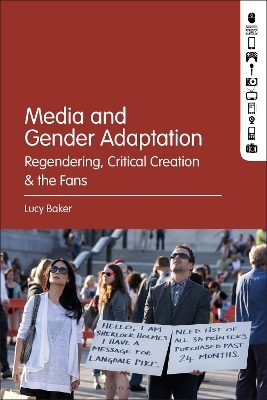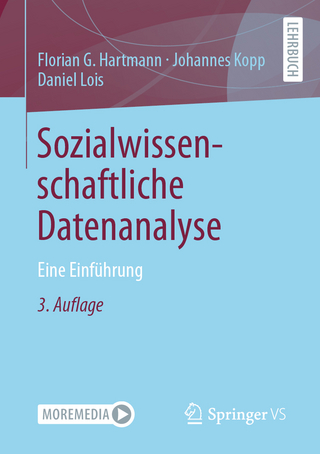
Media and Gender Adaptation
Regendering, Critical Creation and the Fans
Seiten
2024
Bloomsbury Academic USA (Verlag)
978-1-5013-7010-6 (ISBN)
Bloomsbury Academic USA (Verlag)
978-1-5013-7010-6 (ISBN)
Media and Gender Adaptation examines how fans and professionals change the gender of characters when they adapt existing work. Using research into fans, and case studies on Sherlock Holmes, Ghostbusters and Doctor Who, it illustrates the foundation of the process and ways the works engage with and critique media and gender at a political level. The default maleness of narratives in media are reworked to be inclusive of other points of view. Regendering as an adaptational technique relies on audience familiarity with existing works, however it also reveals an increasing trend in aggressive backlash against interpretations of media that include marginalised and minority communities.
Combining analysis of fanfiction, television and big budget Hollywood productions, Media and Gender Adaptation also analyses fan responses to regendering in popular media. Through demographic surveys and interviews with fans, creators and broader audiences, a combination of playful and serious attitudes to gender are revealed to be part of how transformative fans (professional or not) adapt work. Specific fanfiction examples are analysed alongside professional works to reveal the depth and breadth of fannish play in regendered work and the constraints that professional adaptations are held to. It also reveals a schism in audiences, and those researching media, where the intersection of gender and race are sites of tension – nostalgia combining with expected representation of gender and race to create an aggressive defence of an original work that reiterates the mainstream hierarchies of gender and race.
Combining analysis of fanfiction, television and big budget Hollywood productions, Media and Gender Adaptation also analyses fan responses to regendering in popular media. Through demographic surveys and interviews with fans, creators and broader audiences, a combination of playful and serious attitudes to gender are revealed to be part of how transformative fans (professional or not) adapt work. Specific fanfiction examples are analysed alongside professional works to reveal the depth and breadth of fannish play in regendered work and the constraints that professional adaptations are held to. It also reveals a schism in audiences, and those researching media, where the intersection of gender and race are sites of tension – nostalgia combining with expected representation of gender and race to create an aggressive defence of an original work that reiterates the mainstream hierarchies of gender and race.
Lucy Irene Baker researches and lectures about screen studies, media, humanities, and gender in Australia, and writes about digital communities, genre, gender in media, and fans.
Dedication
Acknowledgements
Introduction
Section 1: Data and theories
1. Regendering Research
2. Fans and Regendering
3. Theories
4. What does ‘Playing with Gender’ Mean?
Section 2: Case Studies
5. A Case Study of Fannish Regendering
6. Gender is a Battlefield
7. Elementary and Regendering the Classics
8. Ghostbusters: Sex and Science
9. Doctor-ess Who?
Conclusion
Bibliography
Appendix 1: Survey Questions
Appendix 2: Interview Questions
Index
| Erscheinungsdatum | 06.02.2023 |
|---|---|
| Verlagsort | New York |
| Sprache | englisch |
| Maße | 152 x 229 mm |
| Themenwelt | Sozialwissenschaften ► Kommunikation / Medien ► Medienwissenschaft |
| Sozialwissenschaften ► Soziologie ► Gender Studies | |
| ISBN-10 | 1-5013-7010-3 / 1501370103 |
| ISBN-13 | 978-1-5013-7010-6 / 9781501370106 |
| Zustand | Neuware |
| Informationen gemäß Produktsicherheitsverordnung (GPSR) | |
| Haben Sie eine Frage zum Produkt? |
Mehr entdecken
aus dem Bereich
aus dem Bereich
Eine Einführung
Buch | Softcover (2022)
Springer VS (Verlag)
32,99 €
wie KI und virtuelle Welten von uns Besitz ergreifen – und die …
Buch | Hardcover (2023)
Heyne (Verlag)
22,00 €


